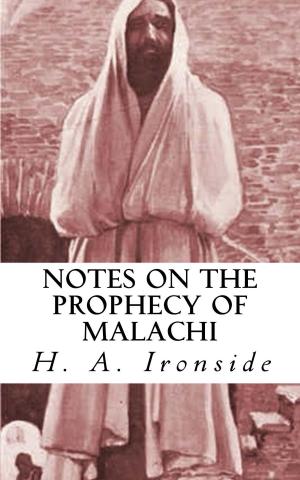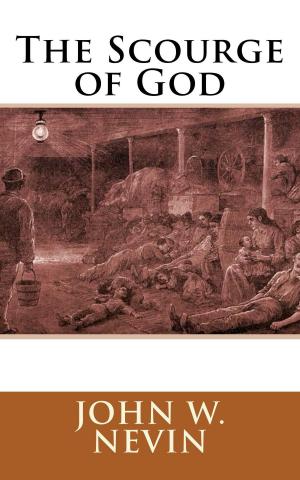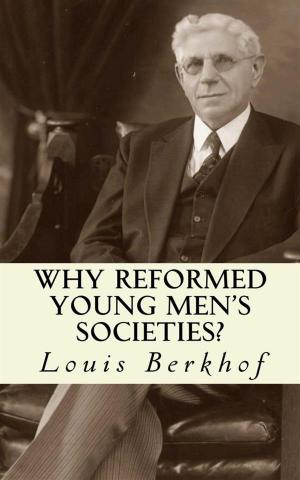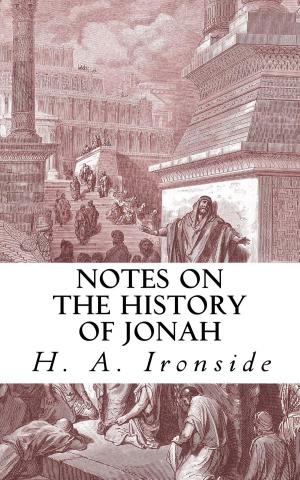If Thou Wilt Be Perfect
Talks on Spiritual Philosophy
Nonfiction, Religion & Spirituality, Christianity, Christian Sermons, Christian Literature| Author: | Oswald Chambers | ISBN: | 1230001938906 |
| Publisher: | CrossReach Publications | Publication: | September 27, 2017 |
| Imprint: | Language: | English |
| Author: | Oswald Chambers |
| ISBN: | 1230001938906 |
| Publisher: | CrossReach Publications |
| Publication: | September 27, 2017 |
| Imprint: | |
| Language: | English |
Two names are mentioned in this book, one is a man, Tauler, and the other a volume, Theologia Germanica. Quotations are made from them. Both belong to pre-Reformation times. John Tauler was born in Strasbourg about 1300. He was a Dominican monk and had already achieved honour and reputation as a preacher when a great change occurred in his spiritual outlook. An unknown layman, after hearing him preach, was moved to tell him that he was allowing himself to be “killed by the letter,” and was yet in darkness, and had not tasted the sweetness of the Holy Ghost. The preacher took the words in a spirit of meekness and was ready to receive helpful counsel from his unknown friend. “You must,” he said, “take up your cross and follow our Lord Jesus Christ and His example in utter sincerity, humility and patience, and must let go all your proud reasoning.” He advised him to cease his preaching for a while and in quiet contemplation examine his life in the mirror of our Lord’s. Tauler was nearly fifty, but he took the place of abasement and self-surrender, and for nearly two years was a seeker of God’s way, praying that God’s life might be brought forth in him. His former friends thought him demented. When the clear light came and he knew the time had come to bear his witness in public, he found it not easy to begin, but soon wisdom and grace from the Holy Spirit were bestowed in abundant measure. So began years of wonderful work for God. In those days when salvation by simple faith in Jesus Christ was so largely hidden beneath ceremonial worship, he taught many that the way to God was by a New Birth that brought men into a vital relation to the Living God. His sermons greatly influenced Luther. They have ministered to many in many countries. A volume of his sermons has been published in English under the title, The Following of Christ.
The book, Theologia Germanica, belongs to the same period. Its author is unknown. That also prepared for the Reformation, as it lays stress on the Holy Spirit’s application of Christ’s work to the heart of a believer. God never leaves Himself without a witness, and in that bedimmed period these lights were shining and have been shining ever since.
John Wesley complained to William Law that when he was an earnest inquirer he had been directed to the mystic writers, and so had missed the basic truth of salvation by faith in Jesus Christ. We all need to know the initial experience of Christ as the Propitiation for our sins, and as the One who has brought to a world of sinners the abundance of grace and the gift of righteousness. Afterwards we may find, as Wesley did, much light in such writers as the above upon how God works in us to will and to do of His good pleasure, and how we can work out our own salvation (Philippians 2:12-13).
The quotations made by Oswald Chambers are themselves of great value, and the expository words that follow are full of luminous and practical teaching for us to-day.
Two names are mentioned in this book, one is a man, Tauler, and the other a volume, Theologia Germanica. Quotations are made from them. Both belong to pre-Reformation times. John Tauler was born in Strasbourg about 1300. He was a Dominican monk and had already achieved honour and reputation as a preacher when a great change occurred in his spiritual outlook. An unknown layman, after hearing him preach, was moved to tell him that he was allowing himself to be “killed by the letter,” and was yet in darkness, and had not tasted the sweetness of the Holy Ghost. The preacher took the words in a spirit of meekness and was ready to receive helpful counsel from his unknown friend. “You must,” he said, “take up your cross and follow our Lord Jesus Christ and His example in utter sincerity, humility and patience, and must let go all your proud reasoning.” He advised him to cease his preaching for a while and in quiet contemplation examine his life in the mirror of our Lord’s. Tauler was nearly fifty, but he took the place of abasement and self-surrender, and for nearly two years was a seeker of God’s way, praying that God’s life might be brought forth in him. His former friends thought him demented. When the clear light came and he knew the time had come to bear his witness in public, he found it not easy to begin, but soon wisdom and grace from the Holy Spirit were bestowed in abundant measure. So began years of wonderful work for God. In those days when salvation by simple faith in Jesus Christ was so largely hidden beneath ceremonial worship, he taught many that the way to God was by a New Birth that brought men into a vital relation to the Living God. His sermons greatly influenced Luther. They have ministered to many in many countries. A volume of his sermons has been published in English under the title, The Following of Christ.
The book, Theologia Germanica, belongs to the same period. Its author is unknown. That also prepared for the Reformation, as it lays stress on the Holy Spirit’s application of Christ’s work to the heart of a believer. God never leaves Himself without a witness, and in that bedimmed period these lights were shining and have been shining ever since.
John Wesley complained to William Law that when he was an earnest inquirer he had been directed to the mystic writers, and so had missed the basic truth of salvation by faith in Jesus Christ. We all need to know the initial experience of Christ as the Propitiation for our sins, and as the One who has brought to a world of sinners the abundance of grace and the gift of righteousness. Afterwards we may find, as Wesley did, much light in such writers as the above upon how God works in us to will and to do of His good pleasure, and how we can work out our own salvation (Philippians 2:12-13).
The quotations made by Oswald Chambers are themselves of great value, and the expository words that follow are full of luminous and practical teaching for us to-day.















